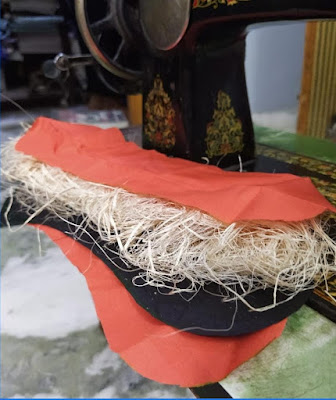Women creating better future for women: The changemakers of Enactus JMI
National Family Health Survey 2015-2016 estimates
that of the 336 million menstruating women in India about 121 million (roughly
36 percent) women are using sanitary napkins, locally or commercially produced.
WaterAid India, a non-profit organisation, estimated that of this 121 million
girls and women dispose of about 21,780 million pads annually, which poses a
major threat to the country’s waste management crisis.
Enactus Jamia Millia Islamia an organisation primarily led by women had long grappled with the lack of menstrual hygiene around them, the hushed conversations in their households, this forced them to start a dialogue that broke the stigma around menstruation. As Saniya Roomi, the Vice-president of Enactus JMI recalls, "In my three years of working at Enactus, one constant aspect of being involved with the underprivileged community has been a hush around anything and everything related to the 'feminine'. There is so much stigma attached with the topics of periods that the word itself has become synonymous with shame."
After months of brainstorming over online meets in the midst of the pandemic they saw a common thread in the social issue they were facing. The pandemic had jostled the nation economically and emotionally, to their notice while the economic repercussions were being discussed widely, no one saw the long term effect i.e the environmental effect. The plastic waste generation had increased tremendously and the non-biodegradable sanitary napkins and masks were not helping the cause, this is where they decided to merge the two most pressing causes together. Keeping in mind the unemployment women face, with lack of menstrual hygiene, coupled with plastic pollution and improper disposal of sanitary waste they gave out a solution - Project Shrimati.
The team came with the idea of producing eco-friendly reusable sanitary napkins made from Bamboo and Banana fibre. They decided that the community that will benefit most from the project should be the one that faces the issue most. So the stakeholders of the project became the underprivileged communities of women living in Shram Vihar, South East Delhi. During their visits to the community they found out that a daughter of one of their community members dropped out of school due to no access to pads while menstruating and this stark reality baffled them, the India they lived in was different than the one this girl lived in, this further drove them to create a product that was economical. Even the least expensive pad threw these women’s budget off and they resorted to using cotton rags. Keeping this in mind, under Project Shrimati Enactus Jamia Millia Islamia is planning to donate 1000 sanitary pads per month for free to females belonging to underprivileged economic classes.
After months of research that came with its own set of challenges due to the online mode, the product structure was finalized as consisting of a mixture of natural, organic, skin-friendly material which is free of chemical bleaching. "While researching for sustainable means of creating eco-friendly products, our team came across natural organic fibers produced from plants such as Banana and Bamboo", says Waqas Ali Iman, The President of Enactus JMI. Talking about the product he further adds, "While designing our sanitary napkins, we experimented with dozens of combinations from various material layers to different forms of manufacturing and formation. The purpose of our thorough experimentation is not just to deliver a product which would provide our community with a source of income or the consumers with a comfortable experience but to deliver something which will bring change to our societal perception of menstruation. Hence, our tagline for Shrimati 'Delivering Change'".
With Shrimati’s model designed around women empowerment, reduced carbon footprint, plastic reduction, Shrimati is all set to be one of its kind and an innovative project. The project has garnered a lot of media attention and has already won competitions like ‘Confluence on Entrepreneurship’ Organised by TATA Institute of Social Sciences, Tuljapir. The project also shone in ‘5th National Social Enterprise Idea Challenge’ hosted by Azim Premji University’ by achieving 1st Runner Up Prize.
With an ambitious vision that this project will create the change they have aimed, Roomi concludes by saying, "Shrimati is close to my heart. We started this project with the foremost aim to break these taboos, to restart stilted conversations around menstrual health and to provide these communities with better tools of sanitation and I believe we will reach there soon."





Comments
Post a Comment